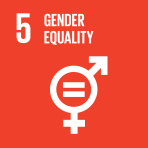Why families? Why now?

- Author: United Nations Women
- Main Title: Progress of the World's Women 2019-2020 , pp 20-39
- Publication Date: June 2019
- DOI: https://doi.org/10.18356/9af5ae51-en
- Language: English
The world over, families are a fundamental unit of society, one with enormous significance for individuals and also for economies. It is often through family relations that people share resources such as housing and income, look after those who are sick and frail, and reproduce, nurture and care for the next generation. Equally importantly, though less tangibly, family life is a common site of love and affection and is pivotal for womens and mens sense of identity, belonging and purpose. This is not to say that families are automatically benign or egalitarian. Nor are they isolated entities, able to sustain their members without supportive communities, markets and states. Social and cultural norms, laws, economic and social conditions, and public policies all contribute to and shape the rights and responsibilities of family members vis-à-vis one another, especially those who are married or in a union, as well as intergenerationally.
-
From This Site
/content/books/9789210042888c005dcterms_title,dcterms_subject,pub_keyword-contentType:Journal -contentType:Contributor -contentType:Concept -contentType:Institution105


